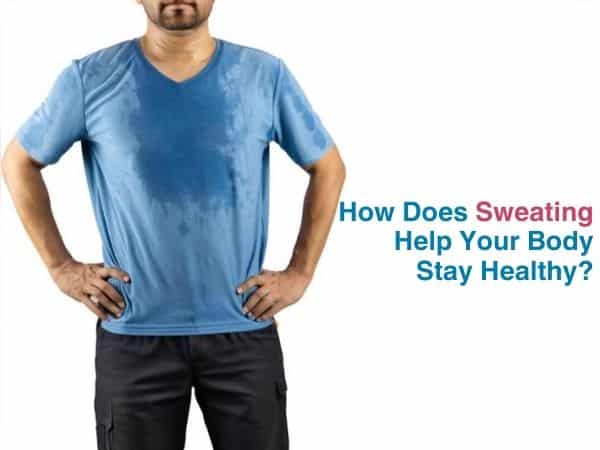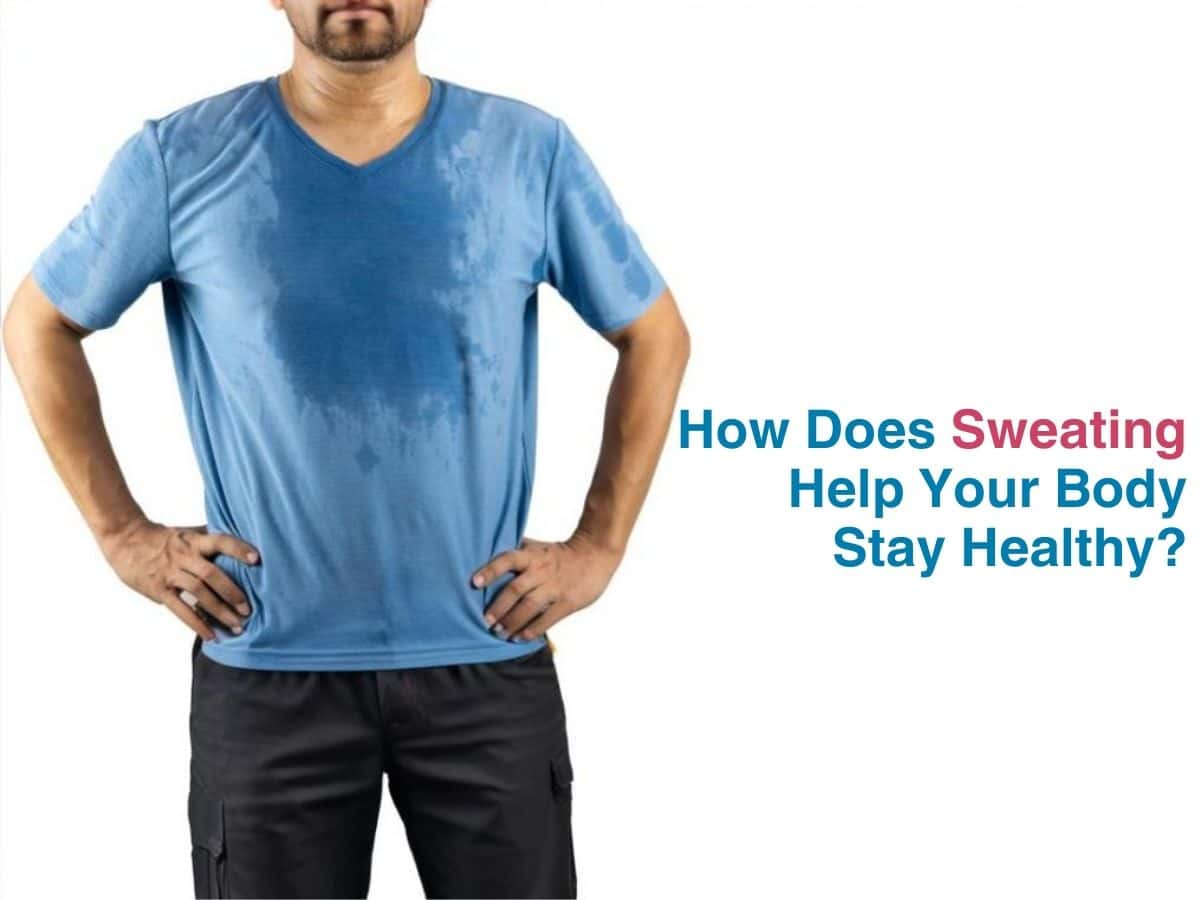
How Does Sweating Help your Body Stay Healthy?

Sweating is a process that mainly involves the loss of fluid from the body when there is some major physical activity involved, though there are other causes which are beyond your control. We sweat via our sweat glands- which are present in the millions at the armpits, palms, soles and on our face. There are two kinds of sweat glands- eccrine which are found almost all over your body and produce odourless sweat. The other is the apocrine glands found in the groin, armpits and scalp- that produces fatty-sweat droplets, which when broken down by microorganisms, can cause body odour. Let us learn more about why sweating is important to stay healthy.
The Role of Sweating in Regulating Body Temperature-
Sweating is a mechanism our body swears by. When you feel sweaty, it means your body is trying to cool down. These sweat droplets then quickly evaporate and help prevent overheating. Heatstroke is normally caused when sweat doesn’t evaporate fast enough, causing your body to remain uncomfortably warm. The autonomic nervous system controls sweating- so you have no conscious idea of when you may or may not sweat. You may sweat like this if you eat hot or spicy food, are suddenly hit by bad news or in the summer. You may also sweat too much if you take certain medications or due to menopause in women (hot flashes and night sweats) and after giving birth as it is one of the ways for the body to get rid of excessive fluids, apart from peeing.
The Impact of Sweating on Skin Health and Complexion-
Sweat can give you that post-workout glow we all crave. It helps open up the pores and get rid of toxins and any other antimicrobial peptides that are the main suspects for zits forming. Sweating can also help regulate and increase collagen levels- which is the protein that keeps your skin looking elastic and wrinkle-free. But this is when you sweat in the right amounts. Sweat and summertime don’t go well together because you can get heat rash, chafing and clogged pores- all of which can increase zit formation. For good skin health, you should wear cotton or similar natural, breathable fabrics, use good quality moisturiser and drink plenty of water.
Role of Sweating in Maintaining Electrolyte Balance-
You normally sweat during intense bouts of physical activity and it is mainly thermoregulatory in function. But, along with these sweat droplets, you also have excessive electrolytes like sodium, chloride and potassium and magnesium being lost- though it is mostly the former two. Sweat composition definitely tends to vary with age, diet preferences and other such factors. Your sweat glands themselves can reabsorb some of the sodium, meaning when you sweat a lot, the concentration of sodium can be pretty high. If you tend to exercise for long periods of time or in extreme heat, then you should consider supplementing with an electrolyte-containing sports drink. The rule of thumb is that you can lose anywhere between 85-250 ml of fluid when you exercise, every 10-20 minutes. So if you want to exercise for longer, it is better you drink water.
Conclusion
It is important to remember that sweating needs to happen at the right amounts. But sweating can help the body get rid of heavy metals and chemicals like BPA and PCB, lower chances of skin infections and help your body stay at a constant temperature. So, gear up and go have a sweaty workout session. It is good for you!






